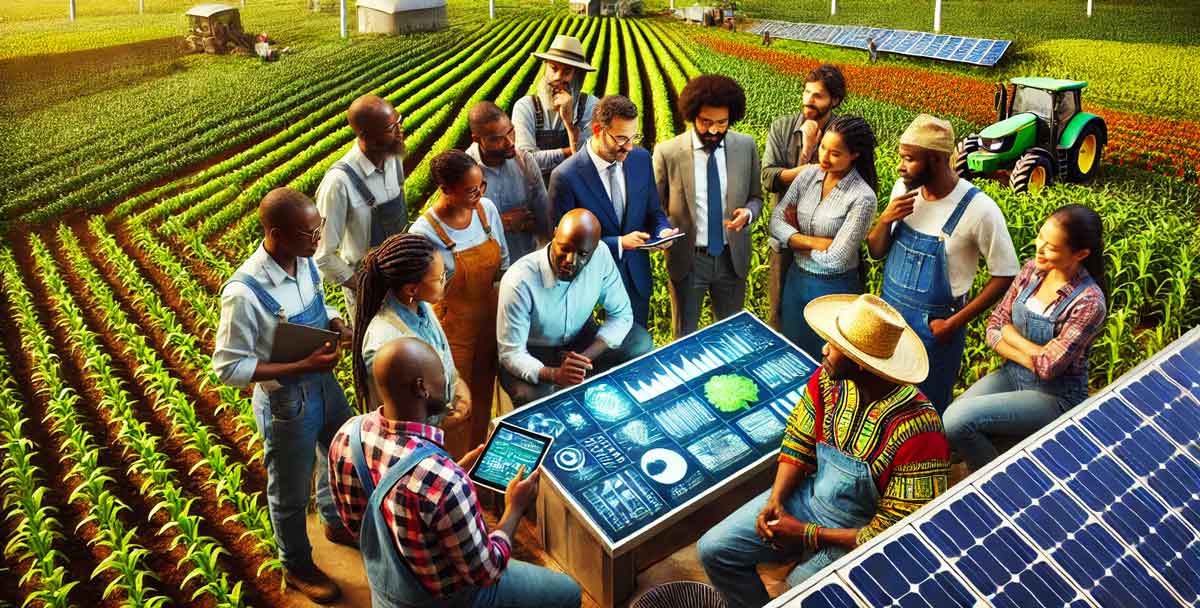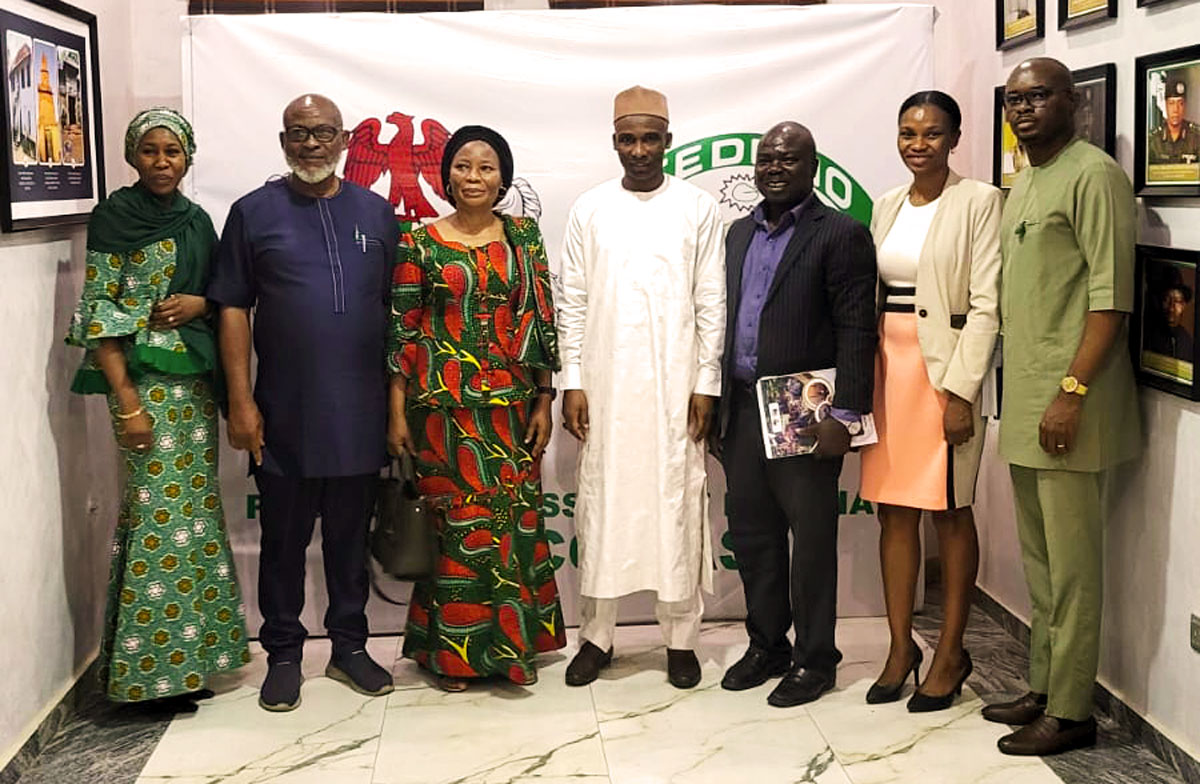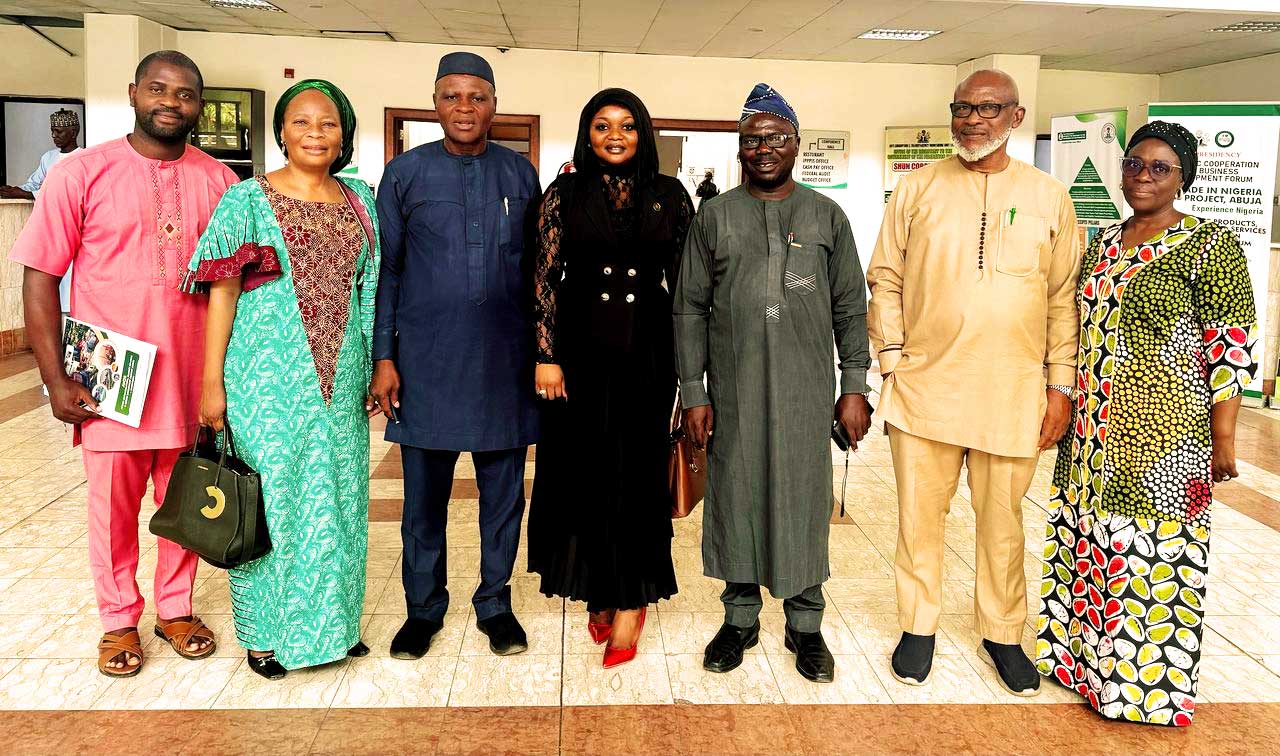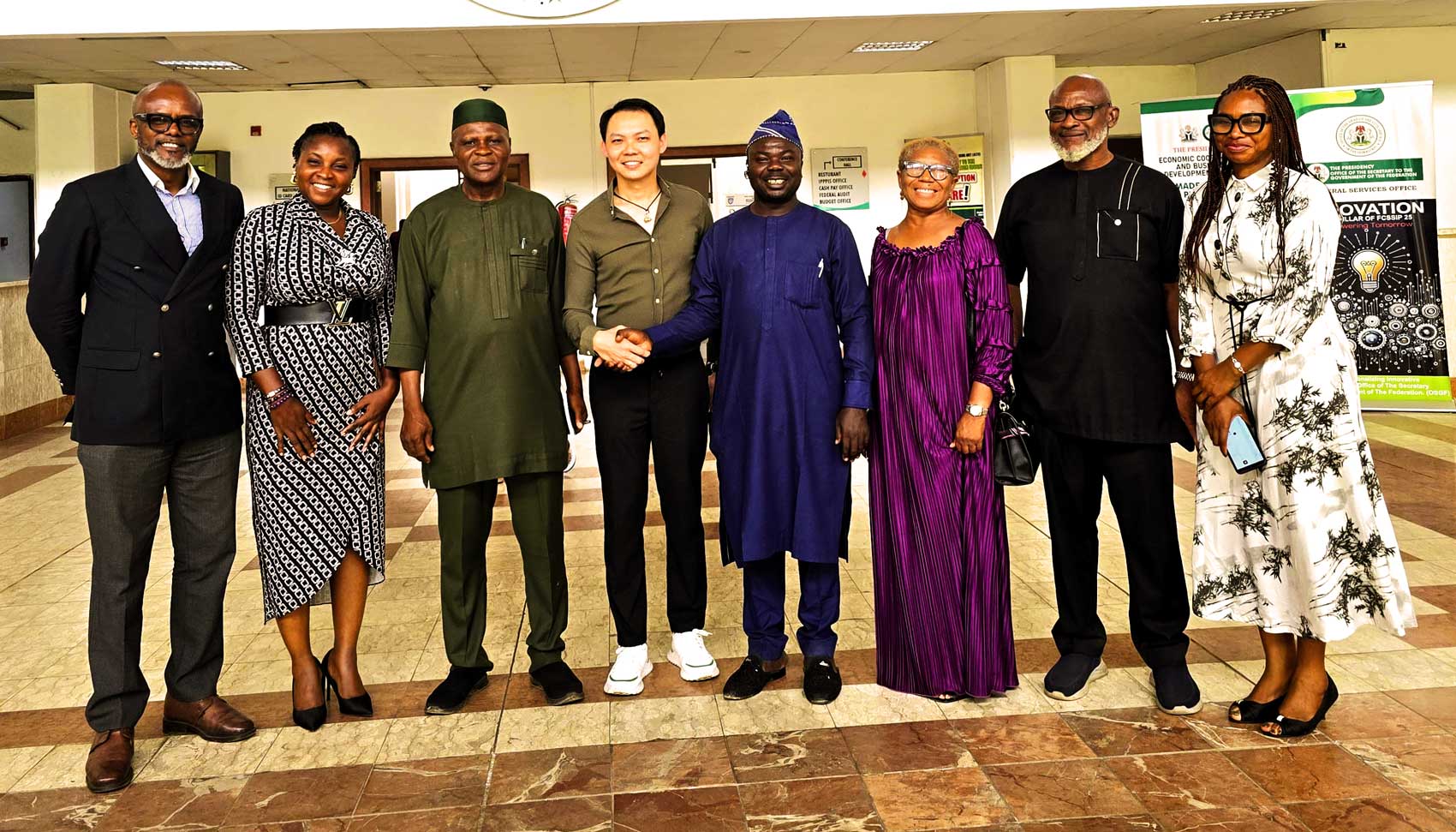Picture vast African landscapes where fields once constrained by erratic rainfall and outdated farming methods are now thriving under the guidance of cutting-edge technology. Envision farmers who, with the tap of a mobile device, can predict weather patterns, optimize irrigation, and connect directly with global markets. This isn’t a distant fantasy—it’s the emerging reality that AICIS 2025, Nigeria aims to foster. As part of the Africa Multilateral Infrastructure, Climate Change, and Green Investment Summit, AICIS 2025 will spotlight how green tech innovations are poised to revolutionize agriculture across the continent, unlocking new economic frontiers and ensuring long-term climate resilience.
Gone are the days when agriculture was merely a subsistence endeavor for millions. Today, it holds the key to sustainable economic growth, environmental stewardship, and food security. By weaving together advanced digital tools, renewable energy solutions, and climate-smart farming practices, Africa can usher in a new era of agro-industrial development that benefits smallholder farmers and global agribusiness alike. At AICIS 2025, policymakers, investors, and tech pioneers will join forces to chart a path for transforming Africa’s agriculture into a green powerhouse—one that drives inclusive prosperity while preserving the planet for future generations.
The Imperative for Green Tech in African Agriculture
Africa is home to 60% of the world’s uncultivated arable land, yet many regions grapple with food insecurity and volatile agricultural productivity. Climate change exacerbates these challenges, introducing erratic rainfall, extended droughts, and crop-destroying pests. Traditional farming methods alone can no longer keep pace with these shifting dynamics.
Green technology offers a lifeline, enabling farmers to increase yields, conserve resources, and adapt to environmental pressures. By integrating eco-friendly tools—ranging from AI-driven crop monitoring to solar-powered irrigation—agriculture can become both profitable and climate-resilient. This shift is vital for ensuring the continent’s growing population has reliable access to nutritious food and stable livelihoods.
Digital Innovations Driving Agro-Transformation
The digital revolution has made significant inroads into African agriculture, bridging gaps once deemed insurmountable. Key innovations include:
A. AI-Powered Crop Analytics
Machine learning algorithms process satellite imagery and on-ground sensor data to forecast weather changes and identify potential crop diseases. These insights help farmers optimize planting times, fertilizer usage, and pest control measures.
B. Mobile Platforms and E-Commerce
Smartphone applications allow farmers to connect with markets in real time, bypassing traditional intermediaries. This direct access improves price transparency, expands buyer networks, and reduces post-harvest losses.
C. Blockchain for Supply Chain Transparency
Blockchain technology creates secure, traceable ledgers for transactions, ensuring authenticity in organic and fair-trade products. It also streamlines payment processes, boosting trust among buyers, sellers, and financial institutions.
D. Precision Agriculture
Using IoT sensors, drones, and GPS, precision farming tailors inputs—like water and nutrients—to specific field conditions. This targeted approach maximizes yields while minimizing waste and environmental impact.
Renewable Energy’s Role in Sustainable Farming
Energy access is a linchpin for modernizing agriculture. Many rural communities still rely on diesel generators or lack reliable electricity altogether. Renewable energy solutions, such as solar-powered irrigation pumps or biogas systems, offer cost-effective and eco-friendly alternatives. These systems:
- Reduce Operational Costs: Solar irrigation eliminates fuel expenses and protects farmers from price fluctuations in fossil fuels.
- Lower Carbon Footprint: Clean energy sources mitigate greenhouse gas emissions, aligning farming with global climate goals.
- Enable Value-Added Processing: Consistent power supply supports post-harvest processing like milling, drying, and cold storage, enhancing product quality and marketability.
By pairing green tech with renewable energy, agriculture can thrive sustainably even in remote areas, accelerating rural economic development and safeguarding the environment.
Policy Frameworks and Investment Mechanisms
Achieving large-scale adoption of green technology in African agriculture demands robust policy frameworks and innovative financing:
- Tax Incentives and Subsidies: Governments can offer tax breaks or subsidies for renewable energy systems, AI-based farming tools, and eco-friendly inputs, encouraging farmers to transition.
- Green Bonds and Climate Funds: These financing instruments mobilize capital for projects that reduce emissions and promote sustainable farming.
- Public-Private Partnerships (PPPs): Collaboration between governments, investors, and tech innovators can drive large-scale implementation of digital solutions, from data infrastructure to e-commerce platforms.
- Capacity Building: Training and education ensure that farmers and local communities can effectively use new technologies, fostering ownership and long-term impact.
AICIS 2025 will provide a forum to discuss these models, connecting stakeholders to design policy roadmaps that nurture innovation and attract green investments.
Empowering Smallholder Farmers
Smallholder farmers are the backbone of African agriculture, yet they often face limited access to finance, technology, and markets. Green tech solutions can be a game-changer, offering them:
- Micro-Financing for Sustainable Inputs: Mobile credit platforms enable smallholders to purchase seeds, solar pumps, and AI-based tools.
- Digital Training and Advisory Services: Apps and SMS-based services deliver agronomic tips, weather forecasts, and market information.
- Collective Bargaining: Online cooperatives allow farmers to pool resources and negotiate better prices for inputs and outputs.
Empowering smallholders not only boosts productivity but also enriches local communities, contributing to poverty reduction and social stability.
The Role of AICIS 2025 in Shaping Africa’s Green Future
As a cornerstone event under the Africa Multilateral Infrastructure, Climate Change, and Green Investment Summit, AICIS 2025 stands poised to accelerate Africa’s green tech transformation in agriculture by:
- Uniting Policymakers and Innovators: High-level dialogues and workshops will align policy reforms with the latest technological breakthroughs.
- Facilitating Investments: Dedicated forums will connect investors with agro-tech startups, bridging the financing gap for green agriculture.
- Showcasing Success Stories: Real-world examples from across the continent will demonstrate the viability and impact of climate-smart farming.
- Forging Long-Term Partnerships: Networking sessions will foster collaborations that endure beyond the summit, propelling Africa’s agricultural sector to new heights.
Green tech is redefining African agriculture, shifting the narrative from subsistence farming to innovation-driven sustainability. By merging digital solutions with renewable energy, Africa can bolster food security, enhance rural livelihoods, and champion climate resilience. Yet, this transformation hinges on collective effort—robust policies, targeted investments, and active community engagement.
AICIS 2025 will be the pivotal platform where the vision for Africa’s agro-industrial renaissance becomes tangible. Policymakers, entrepreneurs, and financiers will converge to design frameworks that guide the continent’s shift toward green agriculture. The call to action is clear: Join us at AICIS 2025, and help steer Africa into a new era of prosperity, one in which farming is a catalyst for economic growth, social equity, and environmental preservation.
#AICISNigeria2025 #GreenAgriculture #SustainableAfrica #ClimateSmartFarming #DigitalInnovation #GreenInvestment #RenewableEnergy #FoodSecurity #Agritech #AfricaFuture




